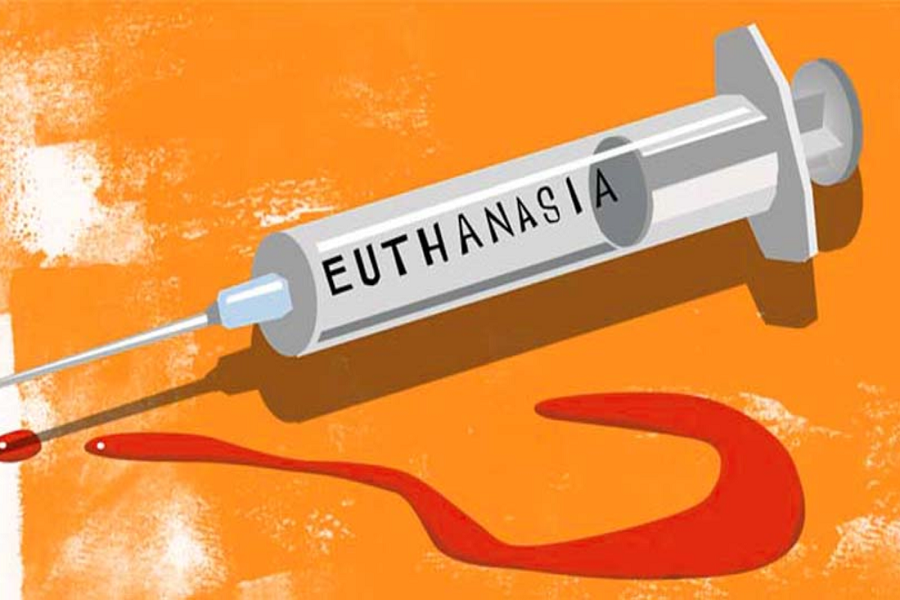
Published :
Updated :

Euthanasia continues to present ethical dilemmas and arouse strong feelings in communities worldwide. The word 'euthanasia' comes from the Greek words 'eu', which means good, and 'Thanatos,' which means death.
Euthanasia is the practice of ending a patient's life to relieve their suffering. It has so many other names: mercy killing, medically assisted, or physician-assisted suicide.
Euthanasia can be divided into two types: active euthanasia, which involves taking quick action to end someone's existence, and passive euthanasia, which involves withholding or withdrawing therapy or other life-prolonging measures.
Ancient Greece and Rome, These two civilisations, are where the idea of assisted suicide first emerged. In these populations, euthanasia was viewed as a method to give those with incurable diseases or terrible suffering a kind or good death.
It was viewed as a compassionate act to alleviate suffering. Famously, the Greek philosopher Socrates committed suicide by ingesting poison hemlock.
The notion that euthanasia is morally acceptable can be traced back to the philosophical teachings of Socrates, Plato, and the Stoics. The concept is widely dismissed in conventional religious doctrine, primarily due to its perceived violation of the prohibition against homicide.
Euthanasia is permitted in many different countries across the world. Many countries, including the Netherlands, Belgium, Luxembourg, Colombia, and Canada, have established physician-assisted suicide or euthanasia legal under strict guidelines. The issue has been dealt with in court cases and ongoing debates in other countries like the United States, Germany, and the United Kingdom.
During the 19th century, euthanasia gained attention in the medical community. It had been examined in academic and medical journals, and some medical professionals argued that it should be made legal to minimize terminally sick patients' suffering.
Throughout the 20th century, there were notable discussions and legal advancements surrounding the topic of medical-assisted suicide. The movement advocating for euthanasia has been gaining momentum in several countries.
In 1935, the Voluntary Euthanasia Legalisation Society (later renamed the Euthanasia Society) was established in England by C. Killick Millard, which was the beginning of an organised movement for the legalisation of euthanasia.
In the 1970s, the Netherlands became the first country to decriminalise euthanasia, but under strict conditions. In a historic move, in 1997, Oregon became the first state in the United States to decriminalize physician-assisted suicide. Under the act, patients diagnosed with an incurable illness and who have a life expectancy of six months or less are permitted to request and receive lethal medication from their doctors.
Following the initial enactment of the legislation, a number of other states in the United States have followed suit and implemented comparable laws. These states include Washington, California, Colorado, Vermont, Hawaii, New Jersey, and Maine.
On the other hand, many countries have raised significant ethical concerns, emphasising the importance of the integrity of life and the possibility of abuse.
Critics contend that the legalisation of euthanasia may adversely affect the doctor-patient relationship, potentially leading to a decline in trust in the medical profession. Experts warn of the potential for a slippery slope as euthanasia is legalised, with concerns that it could eventually be extended to encompass non-terminal illnesses or marginalised groups.
It's important to note that medical-assisted suicide rules and regulations vary widely between jurisdictions, and current debates continue to influence its use and legality in many nations worldwide.
firuz.nawer@gmail.com


 For all latest news, follow The Financial Express Google News channel.
For all latest news, follow The Financial Express Google News channel.